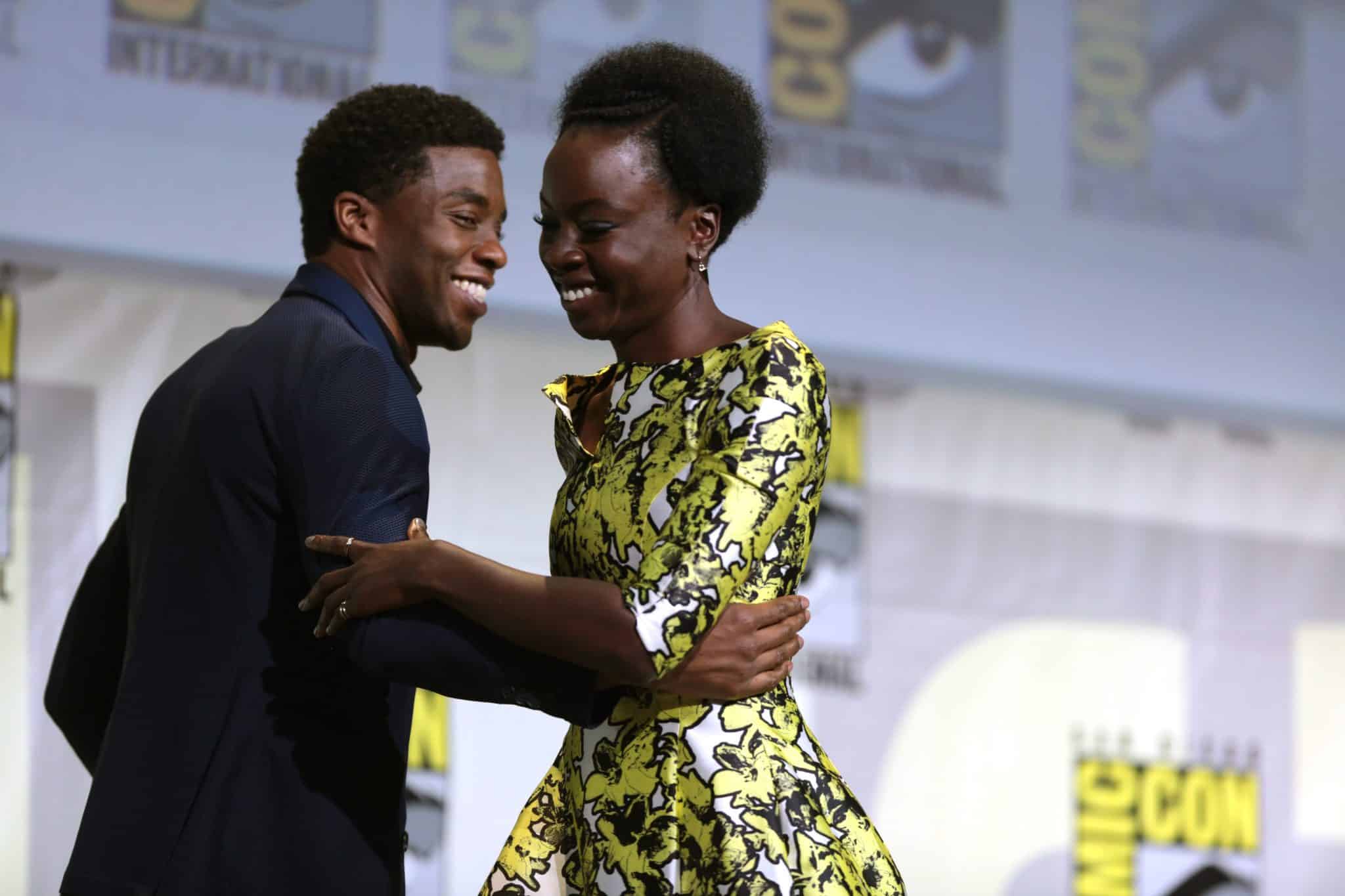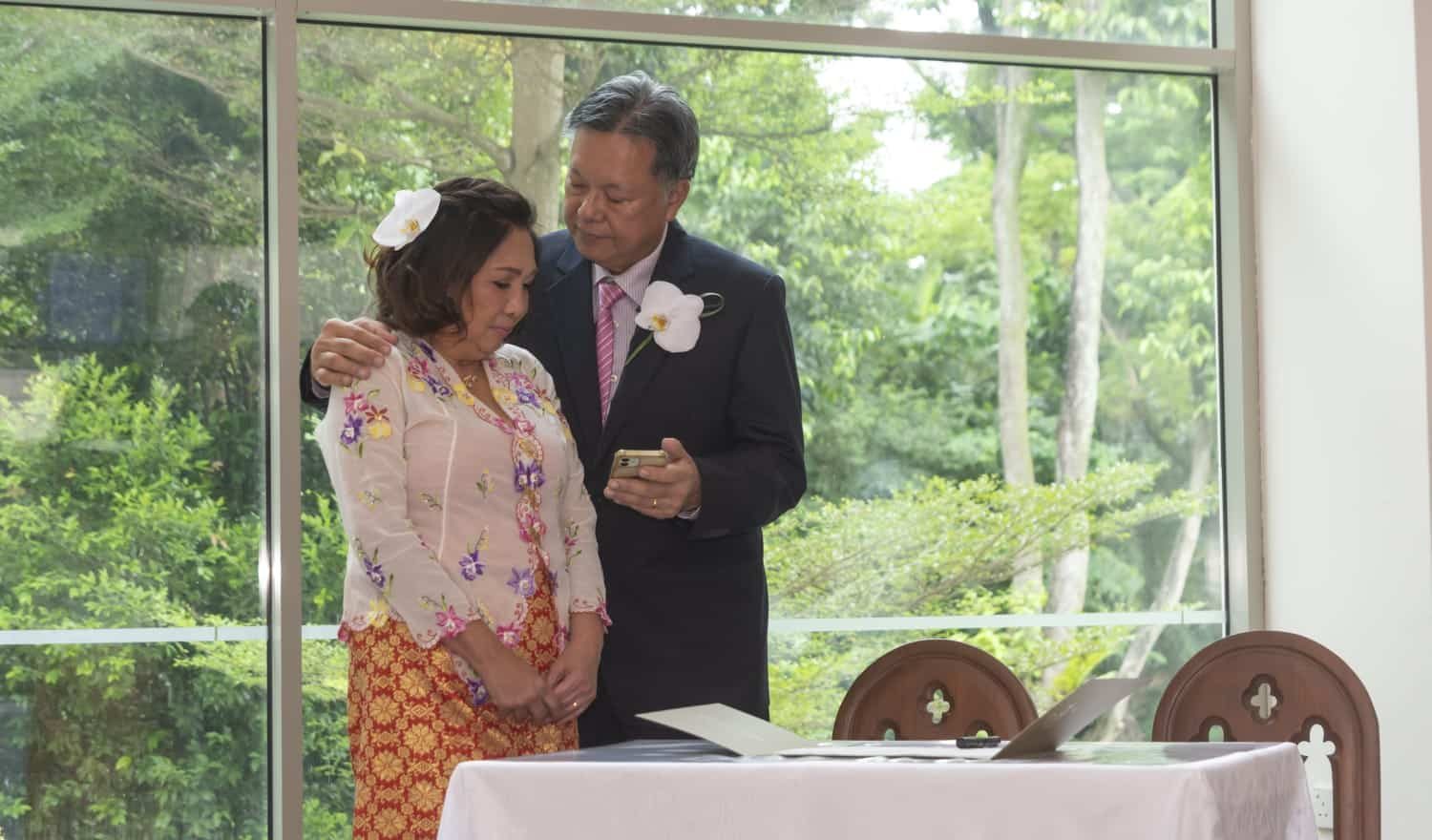Black Panther, Wakanda Forever: A Marvel fan reflects on the grief that lingers after Chadwick Boseman’s passing
WARNING! SPOILERS AHEAD
Kelvin Seah // December 6, 2022, 3:57 pm

Chadwick Boseman as Black Panther in the 2018 eponymous MCU film. Photo credit: Marvel Studios
Even if you’re not a follower of the Marvel Cinematic Universe (MCU) movie franchise, you’ll probably have heard of the death of one of its lead actors and how it plunged fans everywhere into shock and grief.
Chadwick Boseman, who played the title role in The Black Panther (2018), died in 2020 from colon cancer. He was only 43.
His sudden death meant that there were major changes to be made to the Black Panther sequel which had not yet been filmed.

Screenshot from The Black Panther (2018) trailer.
Should they recast another actor for the role and carry on as though nothing happened? Or should they re-script the sequel and pass the mantle of The Black Panther (BP) to another of the film’s existing characters?
Either way, I had strong misgivings.
It would be a travesty for another actor to don the iconic Black Panther suit and shout forth the characteristic Wakandan battle cry: “Yi-bam-be!“
Yet the show must go on – as they say, so I was curious how the MCU would tackle this gnarly problem.
A tribute released
Last month (Nov 2022), Wakanda Forever debuted in cinemas worldwide and was the second-highest weekend opening film this year.
Having watched the movie two weeks ago with my sons, I came away feeling like I had just attended one long memorial tribute to Chadwick.

Late actor Chadwick Boseman, the Black Panther, and his fellow cast member, Danai Gurira who played Okoye in 2016. Photo by Gage Skidmore on Wikimedia Commons.
Not only did it pay the highest compliment and tribute to a great actor; but the gravitas that permeated the entire film also felt like a fitting end to the current Phase 4 of the MCU timeline.
I can only marvel at writer-director Ryan Coogler and the stellar cast for their vision and commitment to immortalise on the silver screen the respect, honour and love they have for their colleague and friend Chadwick. And to do so poignantly and powerfully.
Two years after his death, the world mourns Chadwick’s passing once more.
The six stages of grief
There are different stages in the grieving process.
I resonate most with the six stages of grief expounded by grief expert David Kessler who added the sixth stage – Meaning – to the five established by his mentor Elizabeth Kubler-Ross. These aren’t necessarily sequential in their manifestations, and the process is often iterative.
In Black Panther: Wakanda Forever, I found expressions of all six – mostly with the character Shuri, played flawlessly by Guyanese-British actress Letitia Wright.
(Warning: Spoilers ahead!)
Stage 1: Denial
In the opening sequence, we found Shuri, princess and chief scientist of Wakanda, racing against time to recreate the “heart-shaped herb” in her cutting-edge lab to try and save her older brother King T’Challa, aka The Black Panther, who was fighting a losing battle with an unspecified illness.
But when her mother, Queen Ramonda, appeared before her to announce T’Challa’s demise, the look of sheer disbelief on Shuri’s countenance was painful to witness.
Despite the Queen’s entreaty, she refused to leave the lab and refused to accept the news of her beloved brother’s death. Shuri was in full-blown denial.
This is the stage of first confrontation with the circumstances surrounding a loss; denial is an automatic rejection of the circumstance.
In the Bible, when Job was first plagued by his trials, his wife’s and friends reacted in shock. They accused Job of wrong-doing and bringing the troubles upon himself, without acknowledging God’s sovereignty over life.
Stage 2: Anger
There’s probably no angrier moment for T’Challa’s grieving mother Queen Ramonda than when she realises that General Okoye, who commands the Dora Milaje, an elite squad of female Wakandan soldiers and bodyguards, failed to protect Shuri from their enemies.
“Lord, if you had been here.”
You can see her anger – both physical and emotional, it is almost visceral.
This is grief at its purest, and it is only human.
The Bible records an account where the friend of Jesus, Lazarus died and was buried. Jesus had been sent for, but He arrived only after Lazarus had been in the tomb four days. Lazarus’ sister, Martha, had gone out to meet Jesus and said to Him: “If you had been here, my brother would not have died.” (John 11:21)
How do you speak out and question the man you call “Rabbi”? Martha was a committed follower of Jesus, but I believe this was a display of anger – fleeting as it was – caused by the grief of losing her brother.
Stage 3: Bargaining
In the months following T’Challa’s death, Shuri threw herself fully into her scientific research. Like a warrior on some invisible warpath, Shuri looked determined to reach her goal no matter what.
In the aftermath of loss, we offer anything and everything, hoping that God will take away our pain.
I couldn’t help but feel like she was throwing herself completely into the work to block out memories of her brother and how she couldn’t save him.
And I could almost hear her thinking: “If only I tried this or done that, maybe I could have saved him.”
This is symptomatic of the third stage of “bargaining”.
It attempts to postpone – through a flurry of activities and rationalising – the sadness, confusion, and deep hurt that continues.
In the aftermath of loss, we offer anything and everything, hoping that God will take away our pain.
Stage 4: Depression
We first met the love of T’Challa’s life, Nakia, in the first Black Panther film. Born and raised in Wakanda, Nakia spent most of her time away, serving occasionally as a spy and assassin.
Sorrow stands firmly next to joy in the Bible (2 Corinthians 6:10, Romans 12:15).
After T’Challa died, she refused to return to Wakanda for the state funeral. When Okoye asked why she didn’t return for T’Challa’s funeral, Nakia confessed that it was too hard.
To her, T’Challa had been “everything”. Perhaps staying away from Wakanda and everyone was the only way Nakia felt that she could mourn him without falling apart.
Depression is a stage of grief where the loss has not yet been accepted. Here, the pain is felt at its peak. This is the stage which, I feel, is closest to the meaning of “grief”.
But sorrow stands firmly next to joy in the Bible (2 Corinthians 6:10, Romans 12:15). The prophet Jeremiah is known as the “weeping prophet” and is commonly believed to have been depressed.
Even King David, a man after God’s own heart, grieved openly and wrote many psalms of lament. “In my distress I called upon the Lord; to my God I cried for help. From his temple he heard my voice, and my cry to him reached his ears.” (Psalm 18:6)
Stage 5: Acceptance
A funeral rite in Wakanda tradition involved burning ceremonial funeral robes that had been worn at burials. This was their way to bring to a close the period of mourning, accept the loss and move on.
Shuri struggled with this, but towards the end of the movie, I saw Shuri arriving at the stage of acceptance.
As I think of Mary walking to Jesus’ tomb, I believe that journey had to have been one of acceptance.
Sitting on her own by an open fire at a beach in Haiti, Shuri calmly performs the ritual while flashbacks to scenes of her brother from the first Black Panther film were played. Shuri was finally allowing herself to grieve.
In that moment, she (and I in the audience) wept.
The fifth stage of grief is when the individual has to acknowledge the permanence of the loss and take next step to carry on with living.
This brings to mind Mary and her companions who went to the tomb with spices to anoint Jesus’ body. (Mark 16:1) The spices were meant to control the smell of decomposition, a practice that the Jews did.
As I think of them walking to the tomb that morning, I believe that journey had to have been one of acceptance.
“This is it, I’m going to say goodbye to my Lord.”
The final stage
But there is a sixth stage in the process of grief that the movie also alludes to when Shuri finds meaning and purpose in her life in the movie’s final credits.
The acceptance of grief is one thing, but finding the purpose and meaning in grief is something else altogether.
As humans, we want an answer to our many “whys”.
This stage of meaning is a way for us to understand, in our limited capacity as humans, God’s redemptive plans and purposes.
The acceptance of grief is one thing, but finding the purpose and meaning in grief is something else altogether.
Meaning helps us and strengthens us to move forward with a renewed vigour and a greater purpose.
The One who has the final say
Watching the movie and feeling all I did, I wondered: If I could feel this for a human – Chadwick Boseman, the Black Panther – and his loved ones, what more Jesus who died for us?
It brought me to the moment of Jesus on cross, when He died, and left the people around Him to suffer grief.
I find hope in God that, though now we know in part, at some point we shall fully know. (1 Corinthians 13:12)
It was the purpose and meaning of what Jesus’s death would accomplish that drove Him to sacrifice His life on the cross. He died to redeem us from eternal death and damnation.
We all have a different journey to make.
Some people go through years and years of devastating grief, but I believe grief has a higher order and purpose, though I may not always see it.
I won’t downplay the experience of grief – it devastates us and sometimes feels like we’ve been thrown under a bus – but I find hope in God that, though now we know in part, at some point we shall fully know. (1 Corinthians 13:12)
To me, this is hope. And I live in that hope.
Life is incomplete and messy. We cannot sugarcoat it and it is not a puzzle to be completed.
But we can trust in the One who is the Alpha and the Omega, who holds our days in His hand and, in His time, will restore what the locusts have eaten.
This is an adaptation of Kelvin’s article originally posted on his blog, kelvinsmusings.com.
FIND HOPE IN THE STORIES OF OTHERS WHO LIVED THROUGH THEIR GRIEF:
The story of faith behind Taiwanese toast franchise Fong Sheng Hao
The gifts in the valley: How God shepherded a pastor’s soul after his wife died
We are an independent, non-profit organisation that relies on the generosity of our readers, such as yourself, to continue serving the kingdom. Every dollar donated goes directly back into our editorial coverage.
Would you consider partnering with us in our kingdom work by supporting us financially, either as a one-off donation, or a recurring pledge?
Support Salt&Light



